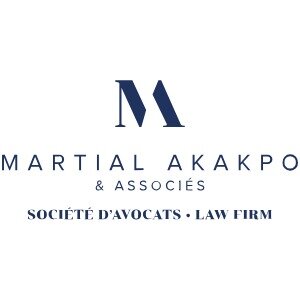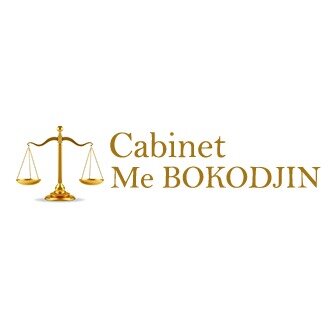Best Communications & Media Law Lawyers in Togo
Share your needs with us, get contacted by law firms.
Free. Takes 2 min.
Or refine your search by selecting a city:
List of the best lawyers in Togo
About Communications & Media Law in Togo
Communications & Media Law in Togo governs the regulations concerning the media, telecommunications, advertising, and internet industries. It deals with issues related to freedom of expression, defamation, privacy, intellectual property rights, and commercial content. Understanding these laws is essential for businesses and individuals involved in these sectors.
Why You May Need a Lawyer
You may need a lawyer specializing in Communications & Media Law in Togo if you are facing legal issues related to publishing content, intellectual property disputes, advertising regulations, or censorship. A lawyer can help you navigate complex laws, protect your rights, and ensure compliance with local regulations.
Local Laws Overview
In Togo, Communications & Media Law is governed by the Ministry of Communication and Digital Economy, which enforces regulations related to media content, licensing, and telecommunications. The law protects freedom of expression but also sets limits on hate speech, defamation, and privacy violations. It is important to consult legal experts to ensure compliance with these laws.
Frequently Asked Questions
1. What constitutes defamation in Togo?
Defamation in Togo is defined as making false statements that harm a person's reputation. It can be punishable by fines or imprisonment.
2. Are there restrictions on internet content in Togo?
Yes, Togo has laws that regulate internet content, including restrictions on hate speech, incitement to violence, and defamation.
3. How can I protect my intellectual property rights in Togo?
You can protect your intellectual property rights in Togo by registering trademarks, copyrights, and patents with the relevant authorities.
4. Can I challenge a media ban imposed by the government?
Yes, you can challenge a media ban imposed by the government through legal channels to protect freedom of expression.
5. What are the penalties for violating advertising regulations in Togo?
Violating advertising regulations in Togo can result in fines, suspension of licenses, or legal action by regulatory authorities.
6. Is it legal to record phone conversations without consent in Togo?
Recording phone conversations without consent is illegal in Togo and can result in legal consequences.
7. Can I sue for invasion of privacy in Togo?
Yes, you can sue for invasion of privacy in Togo if your privacy rights have been violated, such as through surveillance or unauthorized disclosure of personal information.
8. How can I obtain a media license in Togo?
You can obtain a media license in Togo by applying to the Ministry of Communication and meeting the requirements set forth in the regulations.
9. What are the regulations on political advertising in Togo?
Political advertising in Togo is regulated to ensure fair and transparent election campaigns. There are restrictions on content, timing, and funding of political ads.
10. How can I report media censorship in Togo?
You can report media censorship in Togo to relevant authorities, such as the National Media Regulatory Authority, to address violations of freedom of expression and press freedom.
Additional Resources
For more information on Communications & Media Law in Togo, you can contact the Ministry of Communication and Digital Economy or consult legal experts specializing in this field.
Next Steps
If you require legal assistance regarding Communications & Media Law in Togo, it is recommended to seek advice from experienced lawyers who can guide you through the legal process and protect your rights. Be sure to stay informed about local regulations and comply with the legal requirements to avoid potential legal issues.
Lawzana helps you find the best lawyers and law firms in Togo through a curated and pre-screened list of qualified legal professionals. Our platform offers rankings and detailed profiles of attorneys and law firms, allowing you to compare based on practice areas, including Communications & Media Law, experience, and client feedback.
Each profile includes a description of the firm's areas of practice, client reviews, team members and partners, year of establishment, spoken languages, office locations, contact information, social media presence, and any published articles or resources. Most firms on our platform speak English and are experienced in both local and international legal matters.
Get a quote from top-rated law firms in Togo — quickly, securely, and without unnecessary hassle.
Disclaimer:
The information provided on this page is for general informational purposes only and does not constitute legal advice. While we strive to ensure the accuracy and relevance of the content, legal information may change over time, and interpretations of the law can vary. You should always consult with a qualified legal professional for advice specific to your situation.
We disclaim all liability for actions taken or not taken based on the content of this page. If you believe any information is incorrect or outdated, please contact us, and we will review and update it where appropriate.
Browse communications & media law law firms by city in Togo
Refine your search by selecting a city.











